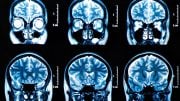
Researchers report a significant increase in ADHD diagnoses and prescriptions for ADHD medication over the past two decades, with the most substantial relative rise noted among adults. Despite the increased figures, there was no significant change observed in children under five, and concerns are raised regarding the accessibility of ADHD assessments and treatments, especially in deprived areas where ADHD is more prevalent.
A recent study conducted by University College London researchers uncovers a notable rise in ADHD diagnoses and ADHD medication prescriptions over the last twenty years. However, this trend does not extend to children under five.
The findings, published in BJPsych Open, analyzed data from IQVIA Medical Research Data, a primary care database in the UK, spanning individuals aged three to 99 between 2000 and 2018.
Of these individuals, 35,877 had an ADHD diagnosis and 18,518 received prescriptions for ADHD medication from their GP.
Although the number of individuals receiving medication for ADHD is still relatively low, the researchers found that ADHD was more commonly diagnosed in children than in adults, and was more common in boys and men than girls and women.
The findings showed that, in absolute terms, the increase was highest in children: Among boys aged 10-16 years, 1.4% had an ADHD diagnosis and 0.6% had been prescribed ADHD medication in 2000, rising to 3.5% and 2.4% respectively in 2018.
But the relative increase was largest among adults. For example, over that time, there was approximately a twenty-fold increase in ADHD diagnoses and nearly fifty-fold in ADHD prescriptions in men between the ages of 18-29 (from 0.01% to 0.56%). However, there was no significant increase in children under five.
Lead author, Dr Doug McKechnie (UCL Institute of Epidemiology & Health Care), said: “ADHD diagnoses and prescriptions for ADHD medication by a GP have become more common over time. Whilst ADHD is most likely to be diagnosed in childhood, an increasing number of people are diagnosed for the first time in adulthood. We do not know exactly why this is happening, but it may be that ADHD has become better recognized and diagnosed. Over the last few years, there have been many reports of long waiting lists for ADHD assessments on the NHS, especially in adults. It’s likely that more and more people will be diagnosed with, and treated for, ADHD, so specialist services need to be made available to handle this.”
Symptoms of ADHD include impulsiveness, disorganization, poor time management skills, difficulty focusing, and restlessness. ADHD symptoms start in childhood, but are increasingly recognized to persist in adults.
The number of ADHD diagnoses was about two times higher in the most deprived areas amongst both children and adults when compared to the least deprived areas.
Dr McKechnie added: “Many people are accessing private care for ADHD. This may create healthcare inequalities given that ADHD is more common in deprived areas. People living in deprived areas may not be able to afford private healthcare and may suffer with undiagnosed and untreated symptoms of ADHD for longer. If people in deprived areas are struggling to get diagnosed with ADHD, our results may actually underestimate how many people there have it, as we only counted diagnosed ADHD.”
The research also highlights how ADHD medication is now being more frequently prescribed.
In the NHS, such prescriptions start with a referral from a specialist before being handed over to GPs.
The researchers are calling for GPs to have better support in prescribing and monitoring these medications.
Dr McKechnie said: “There are already many demands on GPs’ time. We need to ensure we have the right frameworks in place to support them as rates and awareness of ADHD increase – allowing patients to receive prompt, safe, and effective care.”
Dr Peter Carpenter, Chair of the Royal College of Psychiatrists’ Neurodevelopmental Special Interest Group, said: “People with ADHD can struggle with significant disruption to their personal and professional lives if the condition is left untreated. It’s good to see public awareness of the disorder has grown and that more people are coming forward for a diagnostic assessment and treatment.
“Once someone has a diagnosis, they usually benefit from adjustments at work or in other areas of their daily lives. Medication can help treat symptoms of inattention, hyperactivity, and impulsivity, particularly in those who have a moderate to severe expression of ADHD. Talking therapies and peer support groups can also be beneficial. NHS mental health and primary care services must be provided with the necessary resources to meet this unprecedented rise in demand for support. Only with proper funding will they be able to effectively manage growing waiting lists for assessments and provide timely and high-quality post-diagnostic care to those who need it.”
Reference: “Attention-deficit hyperactivity disorder diagnoses and prescriptions in UK primary care, 2000–2018: population-based cohort study” by Douglas G. J. McKechnie, Elizabeth O’Nions, Sandra Dunsmuir and Irene Petersen, 17 July 2023, BJPsych Open.
DOI: 10.1192/bjo.2023.512
Dr. McKechnie is supported by funding from the National Institute of Health and Care Research (NIHR).
Study limitations
The study only captured ADHD medication prescriptions in NHS primary care and not secondary care, which will underestimate the overall incidence and prevalence of medication usage.
The study period finished in 2018 and since then, various events, including the Covid-19 pandemic, have had a substantial impact on mental health services. It is therefore likely that the incidence and prevalence of ADHD in the UK has continued to change between the end of the study and the present date.









It is only necessary to establish the connection of all such occurrences with the vaccination against Covid19 and everything will be clear.
But … doctors are uncomfortable noticing the consequences of toxic and totally ineffective vaccination more and more often 🙁